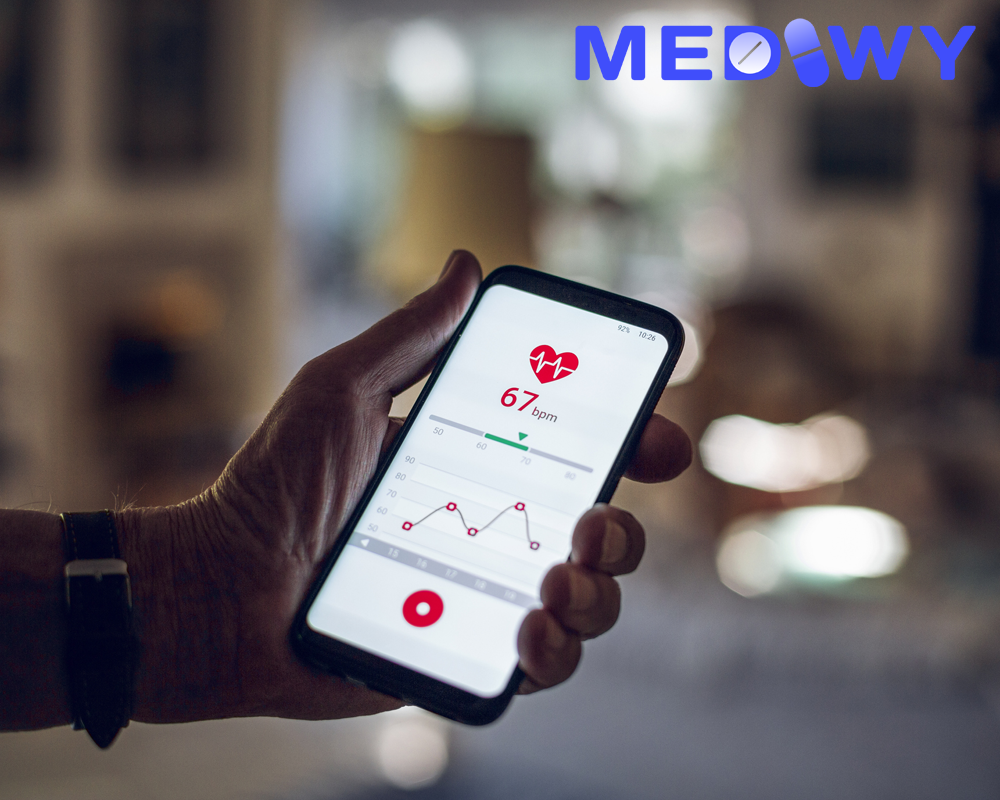Health
25 Astonishing mHealth Statistics

The advantage of mHealth is that technology allows our patients to be involved completely in their pursuit of help. It enables doctors to lessen the incidence of ER visits by regulating chronic diseases. mHealth is among the fastest-growing segments with these new tools.
Here are 25 market trends and statistics related to mHealth.
Common Digital Device Usage Trends
- 68% of Americans had a tablet and 90% had a smartphone. This number has soared exponentially.
- More than 50% of all demographic groups own a smartphone.
Source: Pew Research
- More than 50% of smartphone users use these devices to collect health information online.
- Approximately 64% of U.S. adults regularly use an application to gauge health metrics.
Source: HIMSS
- Almost 50% of Americans feel that possessing the most advanced technology products is significant to them.
- More individuals possess a smartphone, laptop, and a PC, rather than just having a smartphone.
Source: GlobalWebIndex
- Nearly 70% of patients feel that it would help their physician to have access to the health data clicked by their mobile application.
- Texting and email have overtaken phone calls as the most used method of long-distance communication.
Healthcare-Specific Digital Utilization Trends
- More than 66% of healthcare technology executives feel that the use of mHealth will excessively affect healthcare in the future.
Source: HIMSS
- Doctors themselves are expanding their usage of mHealth tools and are using them to:
- Obtain bedside data.
- Scrutinize data from remote devices.
- Transmit data and coordinate continuity of care.
- Organize telemedicine visits.
- Communicate with patients.
- Combine data into EMR.
- The most prominent type of mHealth health applications presently include:
- Workout and fitness trackers.
- Diet and calorie counters.
- Weight monitors.
- Healthy eating.
- Menstrual cycle trackers.
- Blood pressure tools.
- Blood sugar or diabetes tools.
- Medicine management.
- Mood trackers.
- Sleep monitoring.
- 40% of researched physicians feel that mHealth applications such as telehealth can reduce in-office visits.
- 93% of researched physicians feel that mobile health applications can boost a patient’s health.
- 42% of researched patients said that they prefer planning an appointment online but had no opportunity.
- 74% of hospitals that use mobile devices to obtain healthcare data are more productive than those that don’t.
- Smartphones have replaced the conventional pagers and desktops in large hospital establishments. Consumers have been switching to the DIY approach to manage fitness and wellness.
Health IT Outcomes
- Physicians are integrating digital therapies into their patient encounters in rising numbers. 56% of doctors have introduced the use of these tools and 26% of patients have inquired about these tools.
Source: PWC
- 84% of healthcare providers in a new survey say that they are utilizing mobile devices for post-hospital patient discharge assistance.
- The coming of digital therapeutics (a developing health discipline that utilizes technology to enhance or even replace active drugs in disease treatment) is remoulding the landscape for new medicines, product repayment and regulatory oversight.
Source: PWC
- 21% and 33% of consumers are very likely and somewhat likely, respectively, to use an online tool to treat their medical condition.
- Some of the most common kinds of diseases with mHealth applications for monitoring and treating patients are diabetes, hypertension, depression and coronary disease.
Source: Health IT Outcomes
- 75% of all urgent care, physician, or ER visits are needless and can be dealt with through telemedicine.
- 80% of doctors presently use their mobile devices as a basic part of their everyday practice.
- 93% of doctors believe that having a mHealth application related to emergency health services is beneficial.
- Healthcare providers are discovering that smartphones and mobile health messaging platforms are remaking how they conduct population health programs.
So, these were a few healthcare trends regarding mobile health. These studies and outcomes prove that mobile health is increasingly becoming part of an individual’s healthcare routine.




